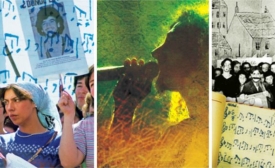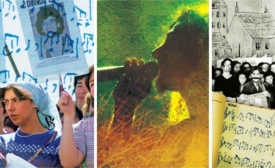Cultural Diplomacy
The Yunus Emre Institutes and language programs have been also Turkey's force as a diplomatic competitor in grounds of cultural diplomacy around the world, Balcı added. "Yunus Emre Institute's language programs help many of the students to re-establish ties their relatives who speak Turkish, find jobs, and add a new color to their lives," Balcı also said. Turkish Language Summer School aims to acquaint its students with Turkish culture and arts, in addition to improving their Turkish language skills.
Every year, about 120 students in the National University of Singapore (NUS) are busy preparing for the biggest student production in campus: NUANSA Cultural Productions. It is an annual show which was started as a humble initiative in 2008 by a group of Indonesian students in NUS, aiming to showcase the diverse and rich Indonesian culture to the Singaporean community.
We began discussions with three Chinese museums in March to explore the possibility of staging an international cultural exhibition and showcase Kenya's rich cultural heritage," said Kibunjia. He disclosed that discussions with Palace museum in Beijing, provincial museums in Yunnan and Guangdong would pave way for the staging of the international cultural exhibition soon.


U.S. museum visitors, who may not be intimately familiar with the Arab world and its gender dynamics, stand to gain a new understanding from viewing works by Arab women artists. The same would go for works by artists in any region that viewers don't know well. But there is a particular need within the Arab world for outsiders to see "beyond news headlines and night-vision photographs," says Sarah Hassan, a New York writer.
Dancers in love with tango's passion bit their nails and hit the floor as more than 700 couples from far and near converged on Buenos Aires....for the qualifying round of the 2015 World Tango Championship. The championships, held every year since 2003, have drawn international enthusiasts from Britain, South Korea, Canada, Colombia, Venezuela, Peru and Mexico.
Six international artists in North Carolina this week demonstrate that international diplomacy can come in many different forms. While many may imagine diplomats wearing business suits and sitting in conference rooms, these artists paint a drastically different picture.







